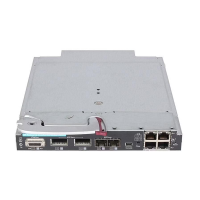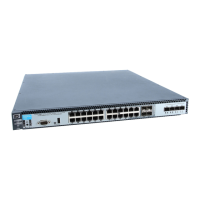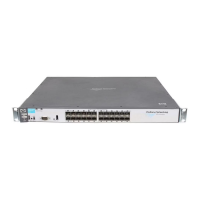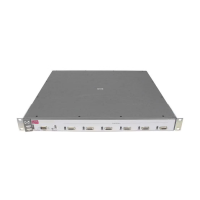353
Parameters
route-policy-name: Routing policy name, a case-sensitive string of 1 to 63 characters.
deny: Specifies the match mode of the routing policy node as deny. If a route satisfies all the if-match
clauses of the node, it cannot pass the node and will not go to the next node.
permit: Specifies the match mode of the routing policy node as permit. If a route satisfies all the if-match
clauses of the node, it passes the node and then is executed with the apply clauses of the node. If not, it
goes to the next node of the routing policy.
node node-number: Node number, in the range of 0 to 65535. A node with a smaller number is matched
first.
Description
Use route-policy to create a routing policy and a node of it and enter routing policy view.
Use undo route-policy to remove a routing policy or a node of it.
No routing policy is created by default.
A routing policy is used for filtering routing information. It contains several nodes and each node
comprises a set of if-match and apply clauses. The if-match clauses define the matching criteria of the
node and the apply clauses define the actions to be taken on packets passing the node. The relation
between the if-match clauses of a node is logic AND; all the if-match clauses must be satisfied. The
relation between different routing policy nodes is logic OR; a packet passing a node passes the routing
policy.
Examples
# Configure node 10 in permit mode of routing policy policy1 and enter routing policy view.
<Sysname> system-view
[Sysname] route-policy policy1 permit node 10
[Sysname-route-policy]
IPv4 routing policy configuration commands
apply ip-address next-hop
Syntax
apply ip-address next-hop ip-address
undo apply ip-address next-hop
View
Routing policy view
Default level
2: System level
Parameters
ip-address: IP address of the next hop.
Description
Use apply ip-address next-hop to set a next hop for IPv4 routing information.
Use undo apply ip-address next-hop to remove the clause configuration.

